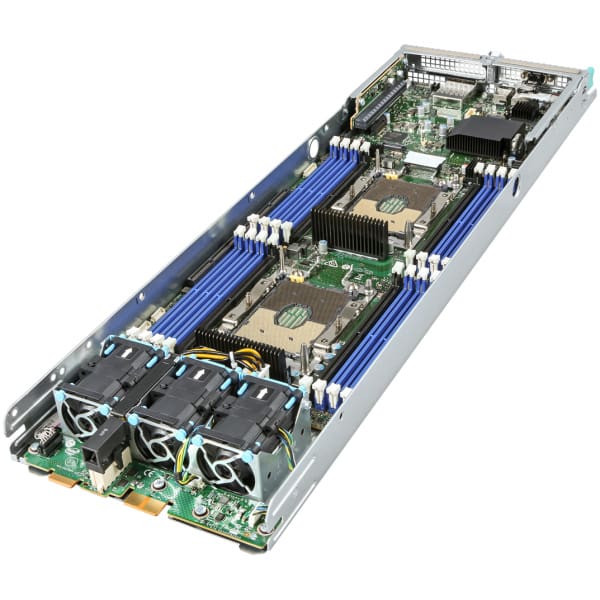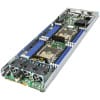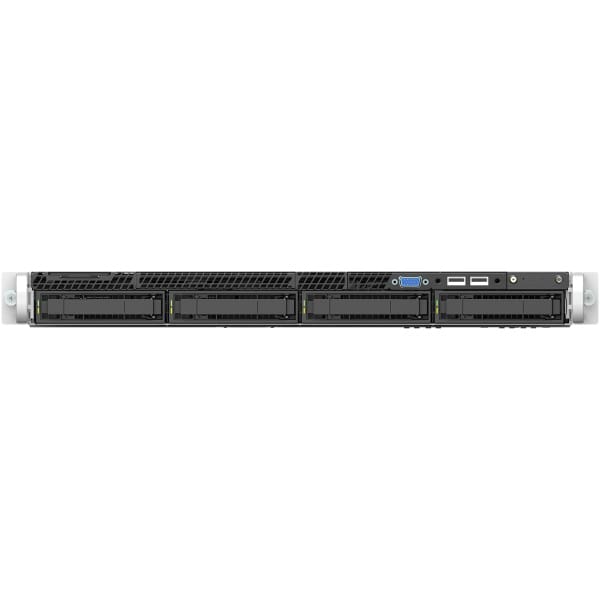Description
Intel® Trusted Execution Technology
Intel® Trusted Execution Technology for safer computing is a versatile set of hardware extensions to Intel® processors and chipsets that enhance the digital office platform with security capabilities such as measured launch and protected execution. It enables an environment where applications can run within their own space, protected from all other software on the system.
Intel® Virtualization Technology for Directed I/O (VT-d)
Intel® Virtualization Technology for Directed I/O (VT-d) continues from the existing support for IA-32 (VT-x) and Itanium® processor (VT-i) virtualization adding new support for I/O-device virtualization. Intel VT-d can help end users improve security and reliability of the systems and also improve performance of I/O devices in virtualized environments.
Intel® AES New Instructions
Intel® AES New Instructions (Intel® AES-NI) are a set of instructions that enable fast and secure data encryption and decryption. AES-NI are valuable for a wide range of cryptographic applications, for example: applications that perform bulk encryption/decryption, authentication, random number generation, and authenticated encryption.
TPM Version
TPM (Trusted Platform Module) is a component that provides hardware level security upon system boot-up via stored security keys, passwords, encryption and hash functions.
Integrated BMC with IPMI
IPMI (Intelligent Platform Management Interface) is a standardized interface used for out-of-band management of computer systems. The integrated BMC (Baseboard Management Controller) is a specialized microcontroller that enables IPMI.
Integrated Graphics
Integrated graphics allow for incredible visual quality, faster graphic performance and flexible display options without the need for a separate graphics card.
Intel® Optane™ Memory Supported
Intel® Optane™ memory is a revolutionary new class of non-volatile memory that sits in between system memory and storage to accelerate system performance and responsiveness. When combined with the Intel® Rapid Storage Technology Driver, it seamlessly manages multiple tiers of storage while presenting one virtual drive to the OS, ensuring that data frequently used resides on the fastest tier of storage. Intel® Optane™ memory requires specific hardware and software configuration.
RAID Configuration
RAID (Redundant Array of Independent Disks) is a storage technology that combines multiple disk drive components into a single logical unit, and distributes data across the array defined by RAID levels, indicative of the level of redundancy and performance required.
Intel® Remote Management Module Support
The Intel® Remote Management Module (Intel® RMM) allows you to securely gain access and control servers and other devices from any machine on the network. Remote access includes remote management capability, including power control, KVM, and media redirection, with a dedicated management network interface card (NIC).
Intel® Node Manager
Intel® Intelligent Power Node Manager is a platform resident technology that enforces power and thermal policies for the platform. It enables data center power and thermal management by exposing an external interface to management software through which platform policies can be specified. It also enables specific data center power management usage models such as power limiting.
Intel® Optane™ Persistent Memory Supported
Intel® Optane™ persistent memory is a revolutionary tier of non-volatile memory that sits between memory and storage to provide large, affordable memory capacity that is comparable to DRAM performance. Delivering large system-level memory capacity when combined with traditional DRAM, Intel Optane persistent memory is helping transform critical memory constrained workloads – from cloud, databases, in-memory analytics, virtualization, and content delivery networks.
| Feature |
Feature Value |
| Built-in processor |
No |
| Motherboard chipset |
Intel® C621 |
| Processor socket |
LGA 3647 (Socket P) |
| Number of processors supported |
2 |
| ECC supported by processor |
Yes |
| Number of DIMM slots |
16 |
| Supported memory types |
DDR4-SDRAM |
| Maximum internal memory |
3 TB |
| Supported RDIMM clock speeds |
2133,2400,2666,2933 MHz |
| Memory channels |
Dodeca-channel |
| ECC |
Yes |
| RAID levels |
0, 1, 5, 10, 50 |
| Ethernet LAN |
Yes |
| Ethernet interface type |
10 Gigabit Ethernet |
| Ethernet LAN (RJ-45) ports |
2 |
| USB ports quantity |
2 |
| USB version |
3.2 Gen 1 (3.1 Gen 1) |
| USB 3.2 Gen 1 (3.1 Gen 1) Type-A ports quantity |
2 |
| VGA (D-Sub) ports quantity |
1 |
| Serial ports quantity |
1 |
| PCI Express slots version |
3.0 |
| Optical drive type |
No |
| Trusted Platform Module (TPM) |
Yes |
| Trusted Platform Module (TPM) version |
2.0 |
| Number of QPI links |
2 |
| Embedded options available |
No |
| Export Control Classification Number (ECCN) |
5A992C |
| Commodity Classification Automated Tracking System (CCATS) |
G157815L2 |
| Compatible operating systems |
Windows Server 2016*|VMware*|Ubuntu* |
| Harmonized System (HS) code |
84713000 |
| Intel Virtualization Technology for Directed I/O (VT-d) |
Yes |
| Intel® Optane™ Memory Ready |
Yes |
| Intel® AES New Instructions (Intel® AES-NI) |
Yes |
| Chassis type |
Rack (2U) |
| Product colour |
Grey |
| LED indicators |
Yes |
| On/off switch |
Yes |
| Cooling type |
Active |
| Thermal Design Power (TDP) |
165 W |
| Packaging content |
(1) 1U node tray
(1) Intel® Server Board S2600BPBR
(1) Power Docking Board FHWBPNPB24
(3) 40x56mm dual rotor managed fans FXX4056DRFAN2
(1) 1U passive Rear heat sink – CPU #1 – CuAL – FXXHP78X108HS
(1) 1U passive heat sink – CPU #2 – AL – FXXEA78X108HS
(1) Air duct
(1) External VGA port bracket
(1) Slot 1 riser card
(1) Slot 2 riser card w/80mm M.2 SSD slot.
(1) bridge board option – AHWBPBGB24, AHWBPBGB24R OR AHWBPBGB24P; |
| On-board graphics card |
No |
| Graphics output |
VGA |
| Status |
Launched |






